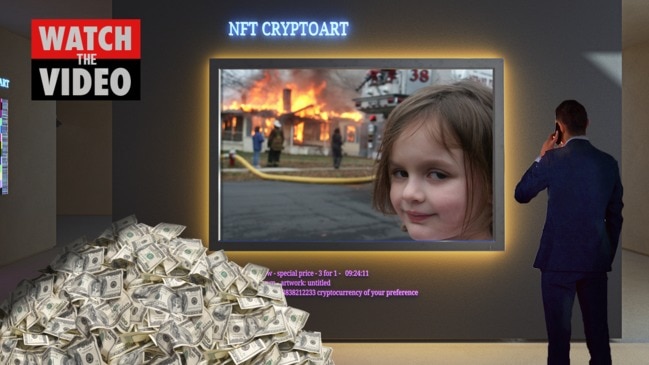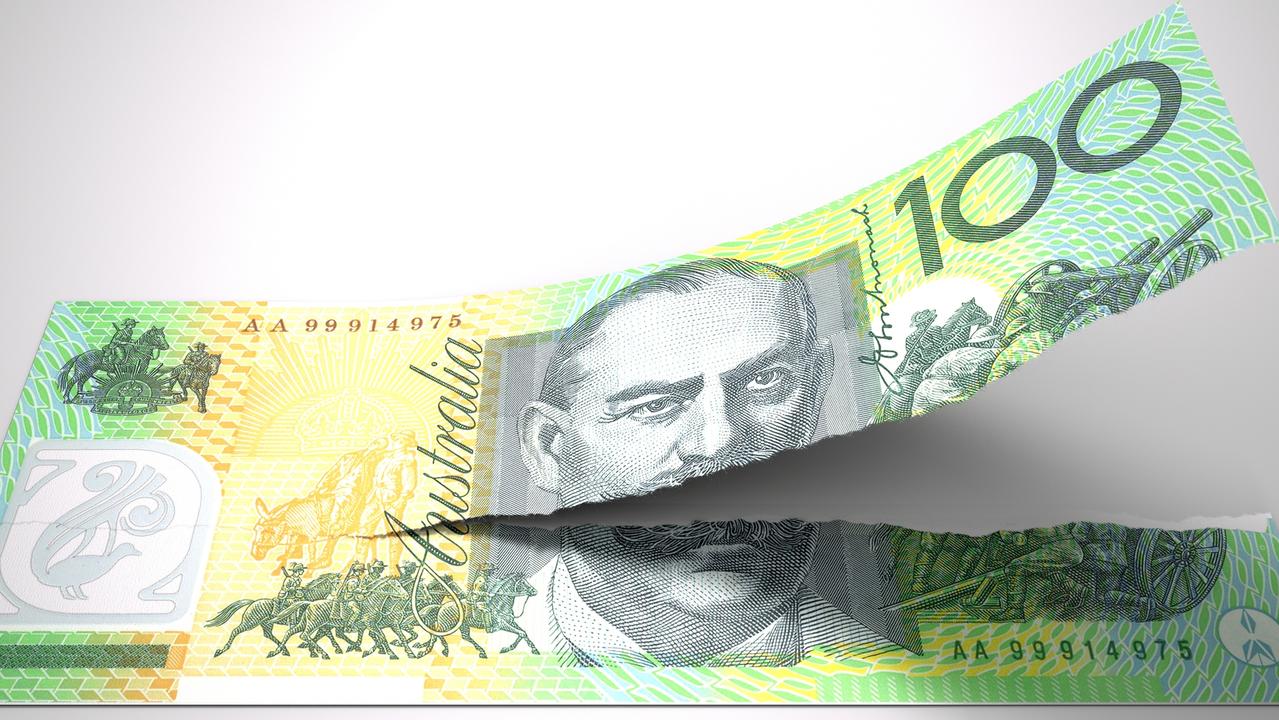Blockchain, NFTs, mooning: how to decipher the new money language
Weird money words are sprouting up everywhere to confuse people financially. Here’s a quick guide to help you understand.

Business
Don't miss out on the headlines from Business. Followed categories will be added to My News.
Mooning doesn’t mean what it used to, most Australians have no idea what a non-fungible token is, let alone a stonk.
Welcome to the crazy world of money talk in 2021.
Fortunately, you won’t need to be fluent in this new language to succeed financially, money experts say, but some basic knowledge can help.
“The world of digital finance can sometimes feel like you’re in a game of buzzword bingo,” says comparison website Mozo.com.au’s spokesman, Tom Godfrey.
“But just because the terms used sound flashy or a little complicated, it doesn’t mean you have to be Warren Buffett to understand them.
“A little research will usually reveal the services behind the terms are simpler than they sound.”
Pride Advice CEO Brett Schatto is not a fan of new terms being created by young traders, speculators and investors.
“It doesn’t make it smart – it’s just a completely different language,” he says.
Schatto says anyone who finds an unusual term and wants to learn more could “start with Google but be careful about what pops up”.
Here’s a quick guide to some new money words.

BLOCKCHAIN
You’ve probably heard of bitcoin, and possibly other cryptocurrencies such as ethereum and dogecoin. Well, blockchain is the technology that drives digital currencies.
It’s a digital ledger of all transactions across a network without needing a bank, government or clearing authority. Some describe it as like a Google spreadsheet securely shared among computers. While crypto is often criticised, blockchain is seen as a technology with a bright future.
NON-FUNGIBLE TOKEN
Shortened to NFT, this is a digital asset that is stored on the blockchain ledger and represents a real-world object such as art or music. Essentially it creates ownership of digital items.
Earlier this year an NFT from digital artist Beeple fetched almost $90 million at auction. Like cryptocurrencies, it has more than a few sceptics.
FINTECH
The name given to the new breed of stocks that combine finance and technology.
Its poster child in Australia has been the buy now, pay later sector led by Afterpay, but many of these companies have suffered a spot of bother in recent months – with some halving in value.
STONK
This is a deliberately-misspelt name given to stocks or shares by younger generations in their online investment forums. Time will tell if it sticks.
EQUITY CROWDFUNDING
This helps small companies to raise money from investors online easily. Equity crowd-funding platforms were licenced by corporate regulator ASIC a few years ago and give small investors a chance to buy into start-ups just like cashed-up venture capitalists, sometimes with as little as $50.
“Technology is an enabler for anyone who has a good story,” Schatto says.
OPEN BANKING
No, it’s not the opposite of bank branches constantly closing across Australia as more customers head online.
It’s a system that went live last year and gives customers the ability to share their banking data with other businesses accredited by the Australian Competition and Consumer Commission. People wanting to switch mortgage or credit card providers can send their data to their potential new lender by clicking a few buttons.

FIRE
It means Financial Independence, Retire Early, and is a global movement that promotes living frugally, investing wisely, and being able to stop work by 40 or younger. Just don’t plan lavish holidays.
MOONING
Back to crazy cryptocurrency terms, “mooning” has evolved beyond baring one’s bottom to now refer to a digital currency’s price rising rapidly, as if on a rocket ship.
HODL
An appropriate verb for current times, it stands for “hold on for dear life” when your crypto or other assets are sinking fast.
YOLO
Short for “you only live once”, it’s a mantra among some investors who have poured a huge proportion of their wealth into one asset and hope for the best. Advisers say this is not a long-term wealth creation strategy, and is much more likely to lead to wealth destruction.





